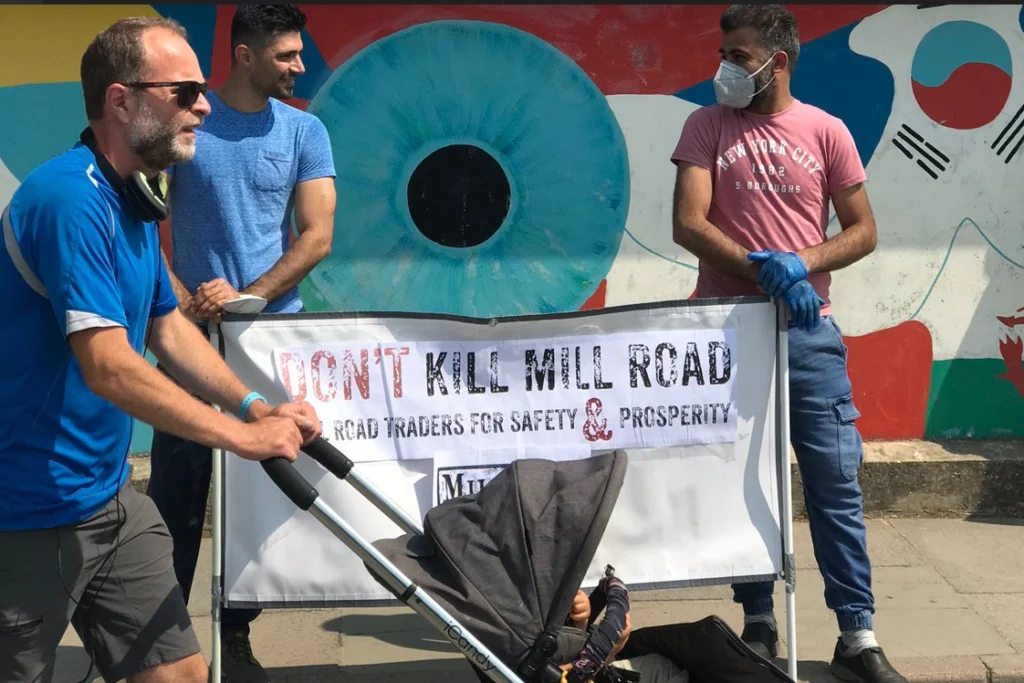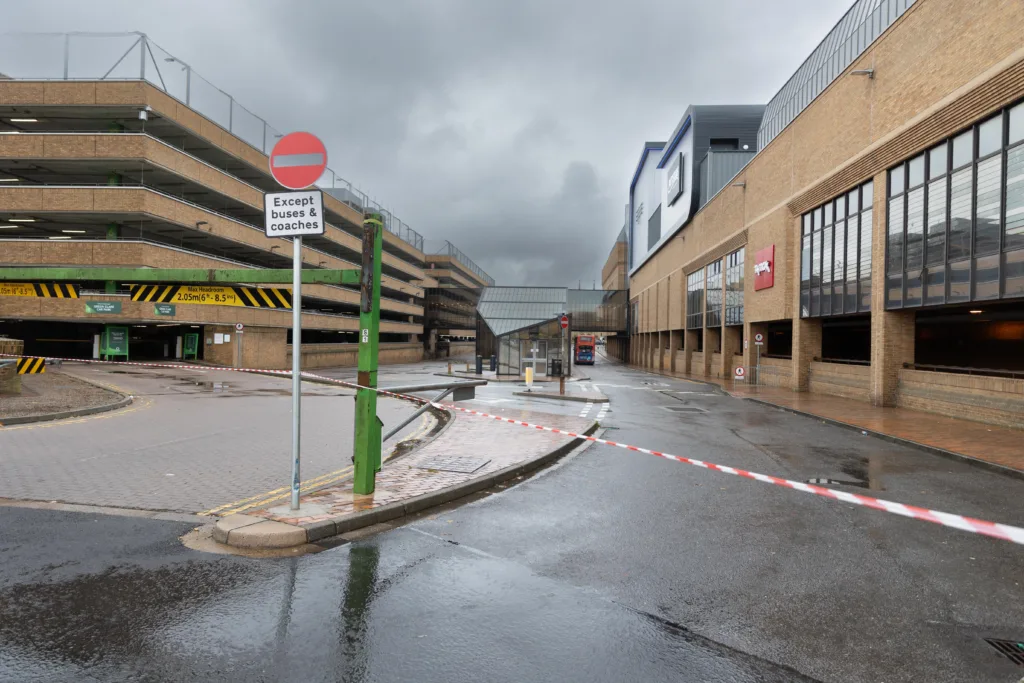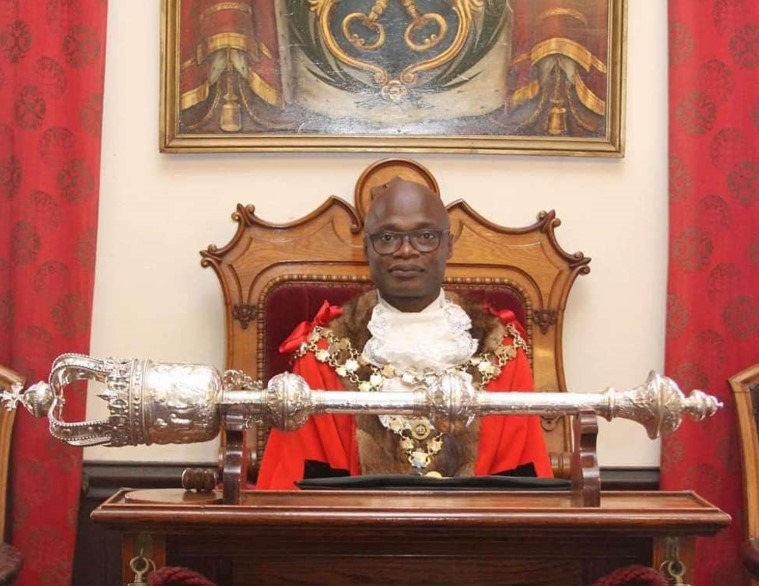At one point, the audience sits in the dark – able to see nothing on the stage for what seemed like at least 10 minutes. I couldn’t tell because I couldn’t see my watch. We were listening to someone being tortured and we heard the screaming. It was long enough for a few people to make their way to the exit.
So, is this the new kind of realism in theatre? What next, stagehands walking along the rows and beating us with sticks.
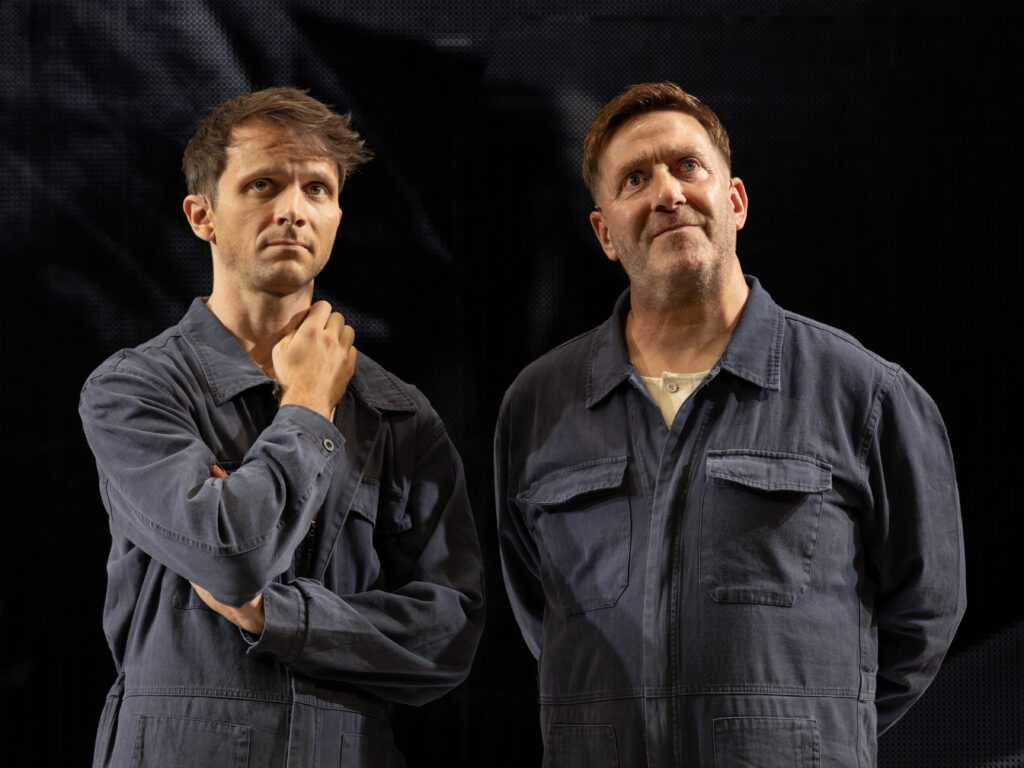
This scene followed another where poor Winston Smith, our main man, is punished with a series of electric shocks. We believed every volt of it.
The charges were accompanied by a shrieking, grinding noise that made you want to cover your ears. In some ways, this play was done not wisely but too well.
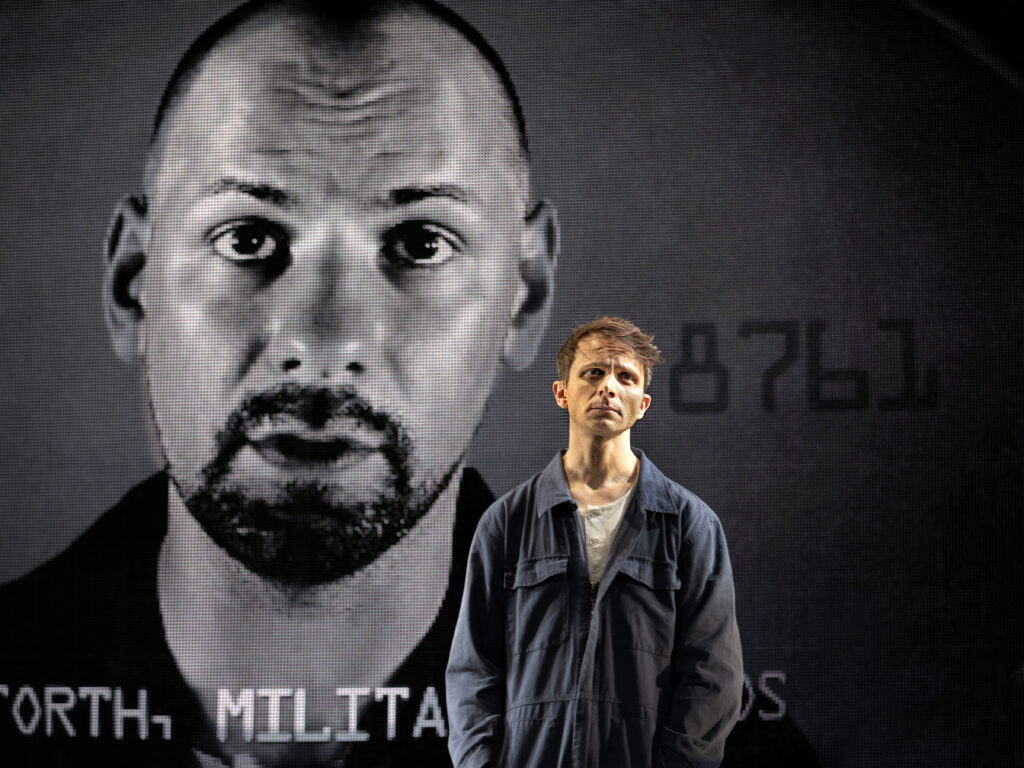
Having said that, there were some bravura performances from the four actors on stage.
Keith Allen as O’Brien, Orwell’s smooth and duplicitous character, had an effortless control of all proceedings.
Both Mark Quartley as our hero Winston and David Birrell as his friend Parsons were utterly convincing (that’s why the electric shocks were so shocking).
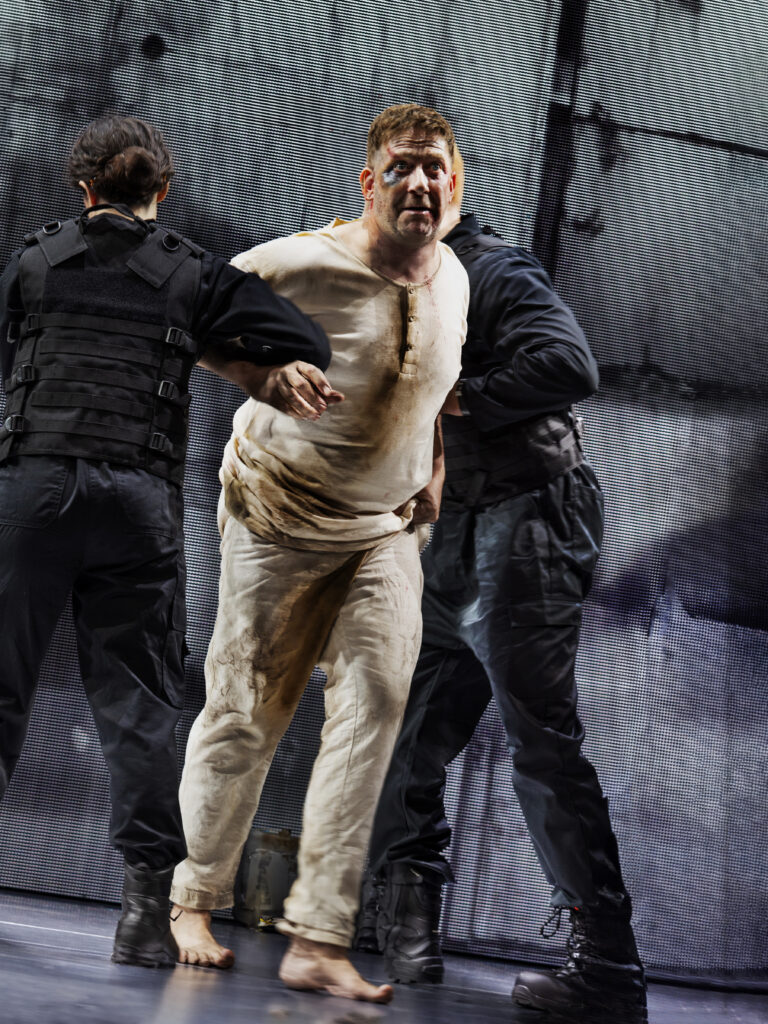
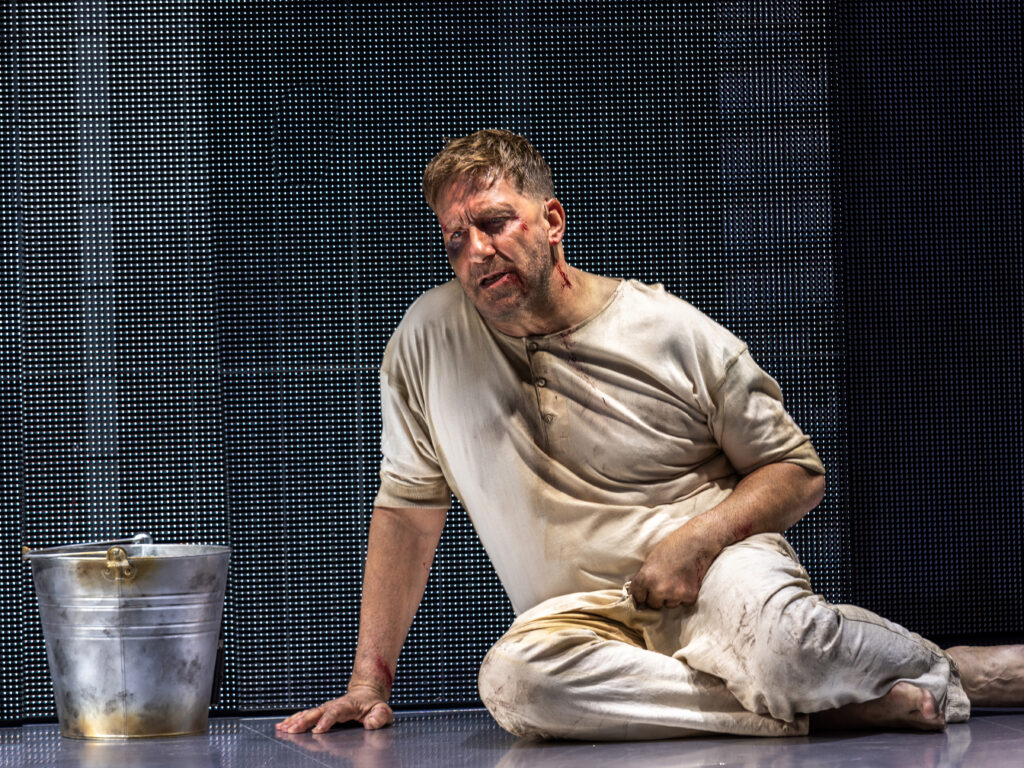
Eleanor Wyld as Julia, a girl who like Winston tries to rebel against Big Brother, is beguiling in her jauntiness.
Orwell wrote 1984 in 1946 and said later that the book wouldn’t have been so gloomy if he hadn’t been so ill. He died in 1950.
As we know now, so much of what he wrote was prescient. His description of Newspeak: War is Peace, Freedom is Slavery, Ignorance is Strength foretold the linguistic contradictions we saw in the 1980s. Care in the Community (for example) meant no care at all.
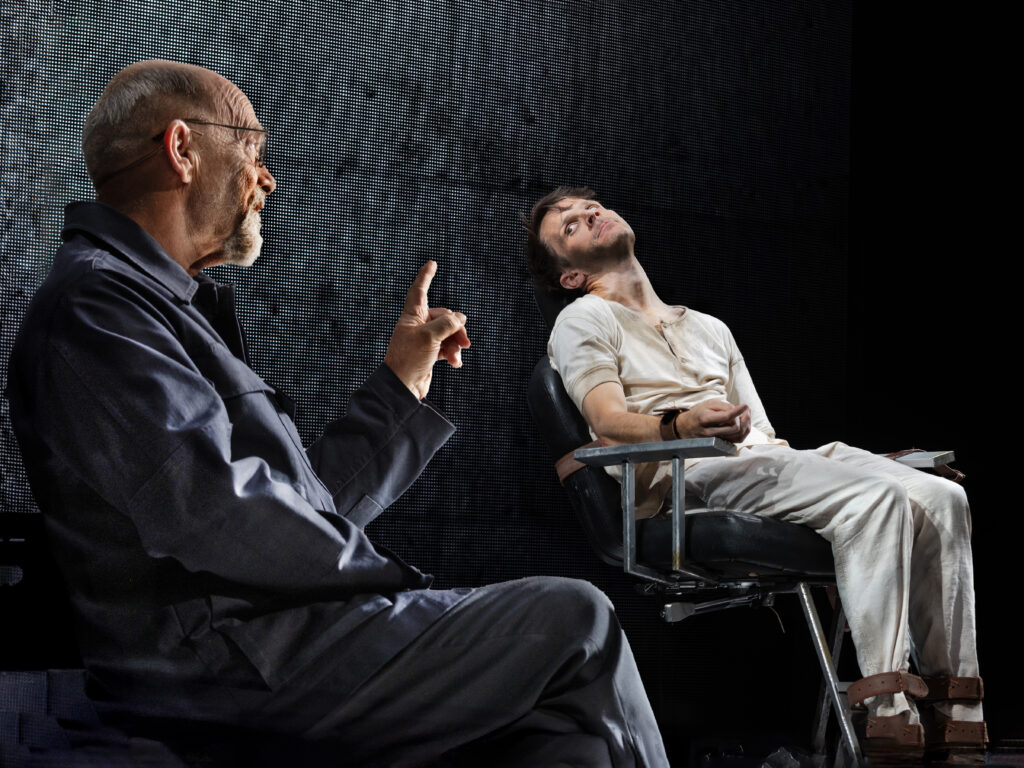
People who had once been looked after in psychiatric hospitals were turned out to beg on the streets.
In Orwell’s predicted world of 1984, Winston’s job is to erode the language so that eventually people will be unable to express themselves. In time, they won’t have the words and phrases to think independently. They will believe whatever they are told.
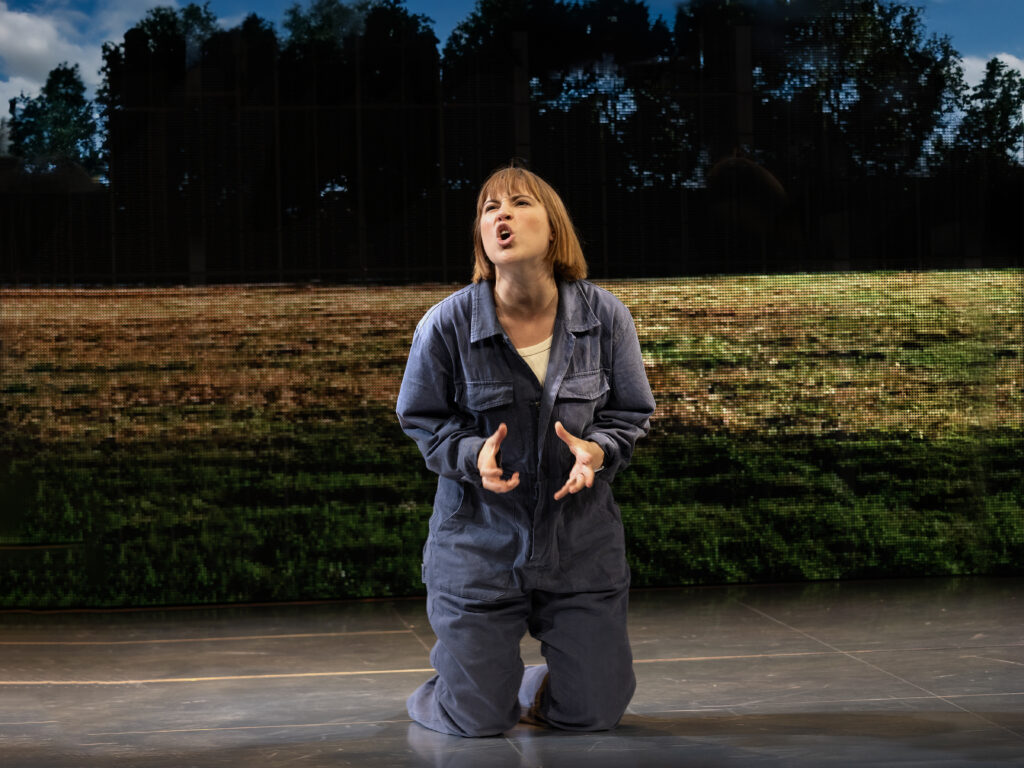
We may think today that we live free and uncontrolled lives, but not only does how much you earn, where you can afford to live, and the education available to you, control absolutely everything you do – it affects how you see things – and what you think is worth protesting about.
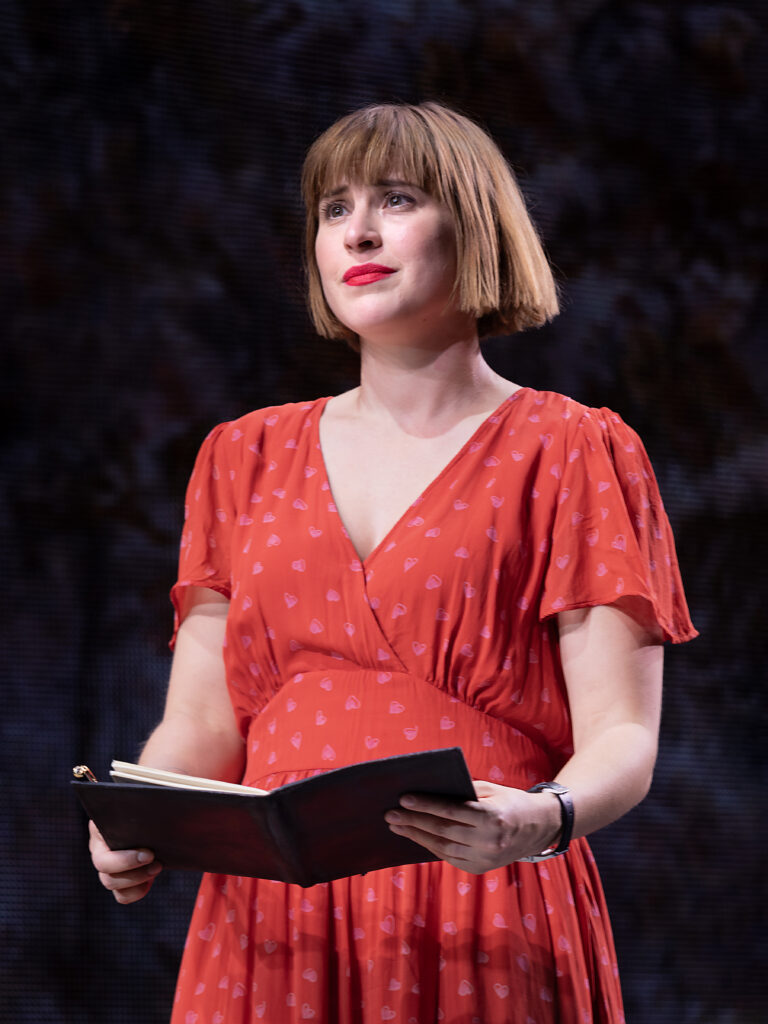
Without education, people are disenfranchised. They can easily be misled into voting for something against their interests – or they may not vote at all.
And as for Big Brother. There he is on our phones and laptops.
Google hotels on your laptop and suggestions will come up on your phone. Speak about any product and you will see advertisements for it on your devices. We are being listened to by machines. Haven’t we all become resigned to that?
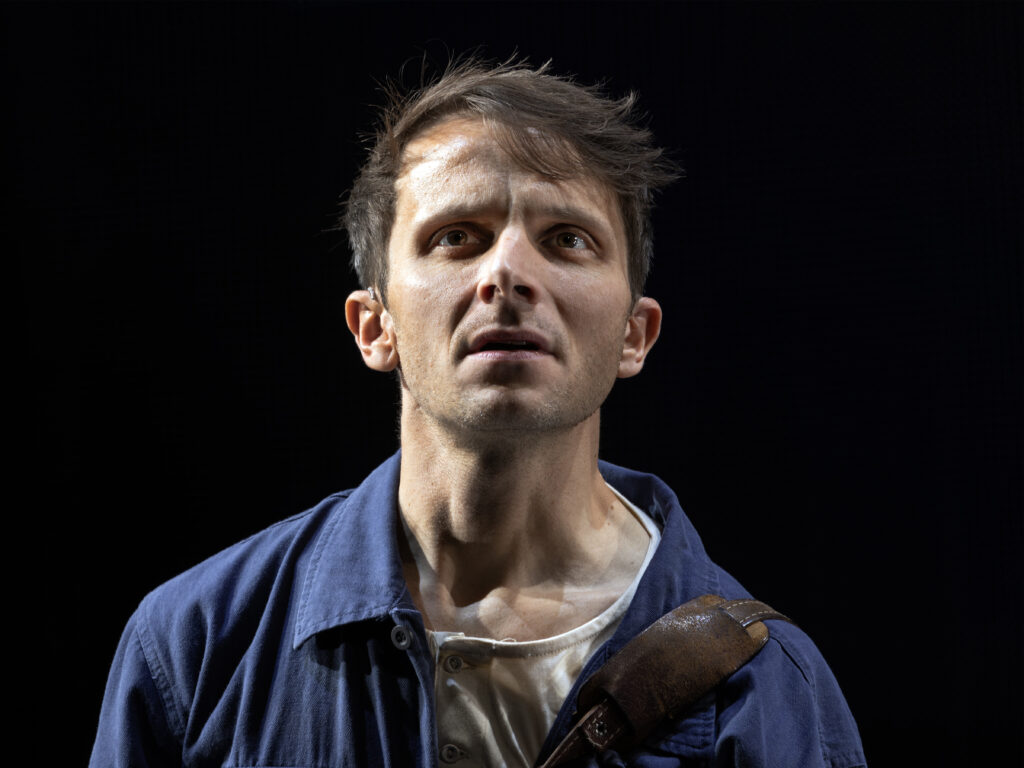
This powerful adaptation by Ryan Craig, directed by Lindsay Posner, pulls no punches. It seems to want the audience to suffer.
It’s memorable but there is very little lightness in it. You might want something cheerful afterwards.
George Orwell’s 1984 is at Cambridge Arts Theatre until Saturday, October 26.


